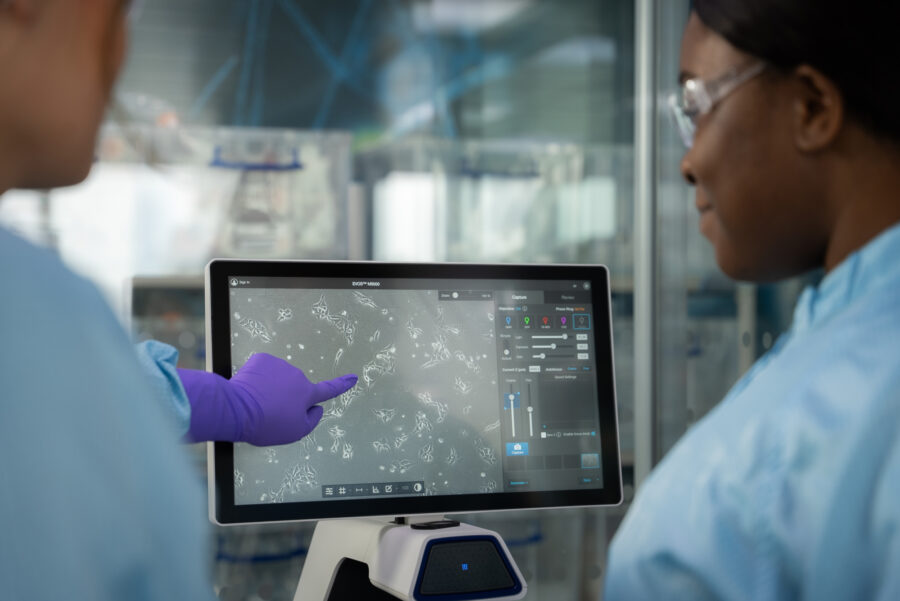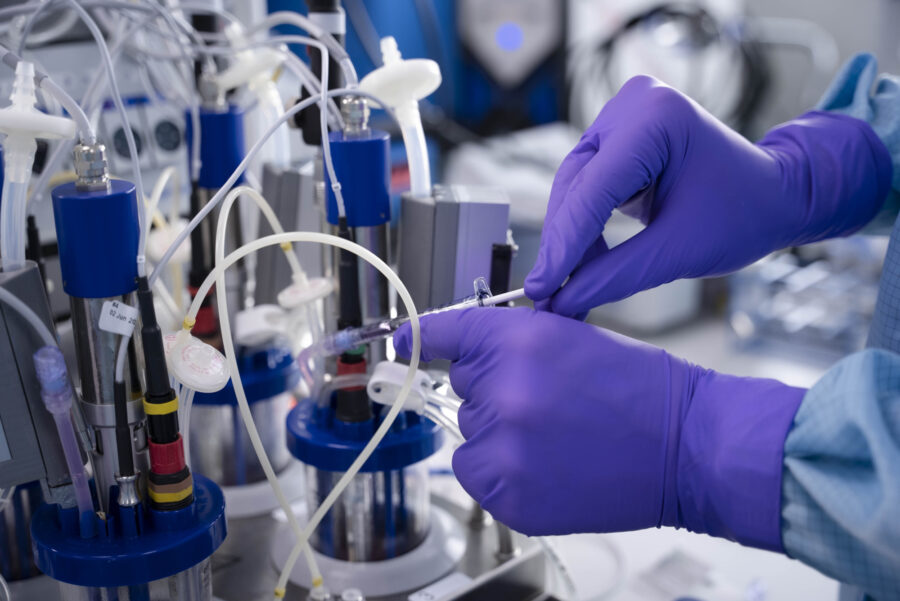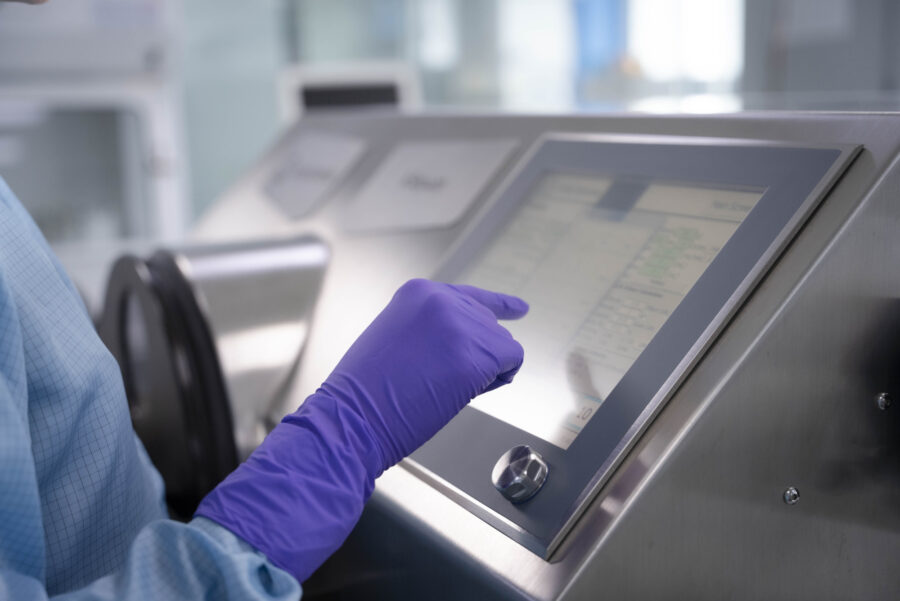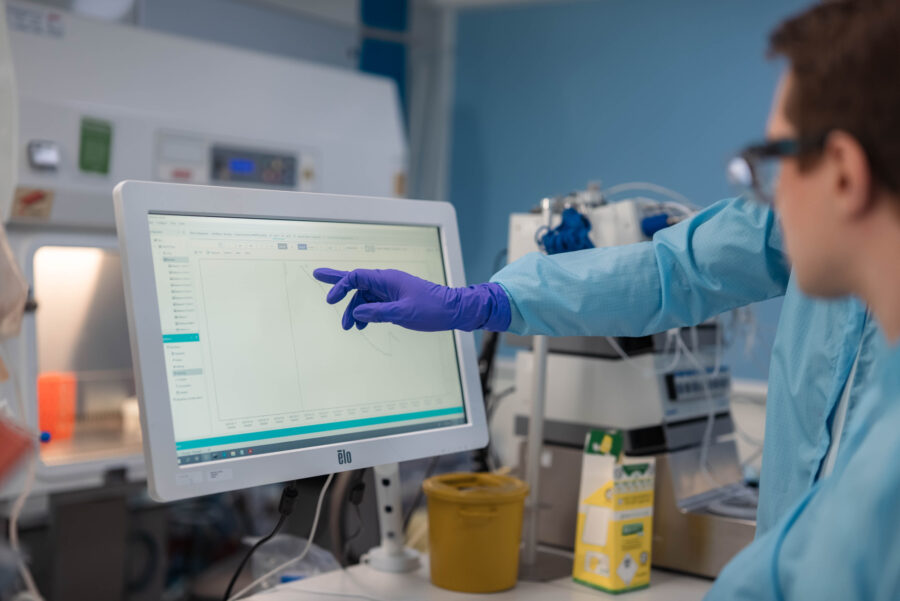Cell Therapies
Our extensive experience with cell therapies has enabled us to develop robust processes to accelerate the potential of autologous and allogeneic cell therapies. Working together, we can help you to develop scalable, closed and controlled, GMP compliant processes for your autologous, CAR-T or pluripotent stem cell (PSC)-derived cell therapy products.
Our areas of expertise include:

Starting material selection and lineage bias
Our research focuses on uncovering the attributes in your starting material which influence process outcome, such as induced PSC (iPSC) lineage bias to help optimise cell differentiation.
With our expertise, we can help you to gain greater control over your cell production process.
Benefit from our expertise in:
- Identifying molecular and metabolic drivers influencing cell production
- Advanced analytics, including epigenetics, transcriptomics, metabolomics and proteomics, for in depth process characterisation
- Non-destructive assays for process control

Cell engineering and gene delivery
We can help you find the right innovative cell engineering technology to accelerate the development of your ATMPs.
Benefit from our expertise in:
- Non-viral gene delivery methods for directed differentiation
- Novel gene editing tools for safer, more cost-effective allogeneic therapies
- Translation from proof-of-concept studies to larger scale clinical stage processes
Analytics for engineered cell characterisation

Manufacturing and scale up
A robust scaling strategy for cell therapy manufacturing is an important step in your journey towards market-ready cell products.
Our experts have developed robust, scalable manufacturing processes for cell therapy production, including:
- An intensified, scalable and closed iPSC expansion platform demonstrating high yield (>107 cells/mL) and purity
- 2D and 3D carrier-free suspension iPSC expansion and differentiation
- Processing platforms featuring automation of key unit operations including single cell seeding, perfusion and semi-automated integrated passage operation
- Scalable cell selection and purification technologies

Analytical development
Advanced analytics are essential to help increase your process understanding and improve manufacturing and therapeutic outcomes.
Our experts have evaluated a range of analytical technologies to support autologous cell and iPSC production and can help you to access and effectively apply these tools to your process.
Benefit from our expertise in:
- Assay development for release and stability testing, in-process monitoring and supporting Process Analytical Technologies (PAT)
- Multi-omics (transcriptomics, metabolomics and proteomics) for differentiation monitoring, controlled lineage specification and biomarker discovery
- Analytics automation solutions and QC innovation approaches for scale-up incorporating novel digital and automation technologies
News feed
Working on a cell or gene therapy innovation challenge?
Contact us today to find out how we can support you.